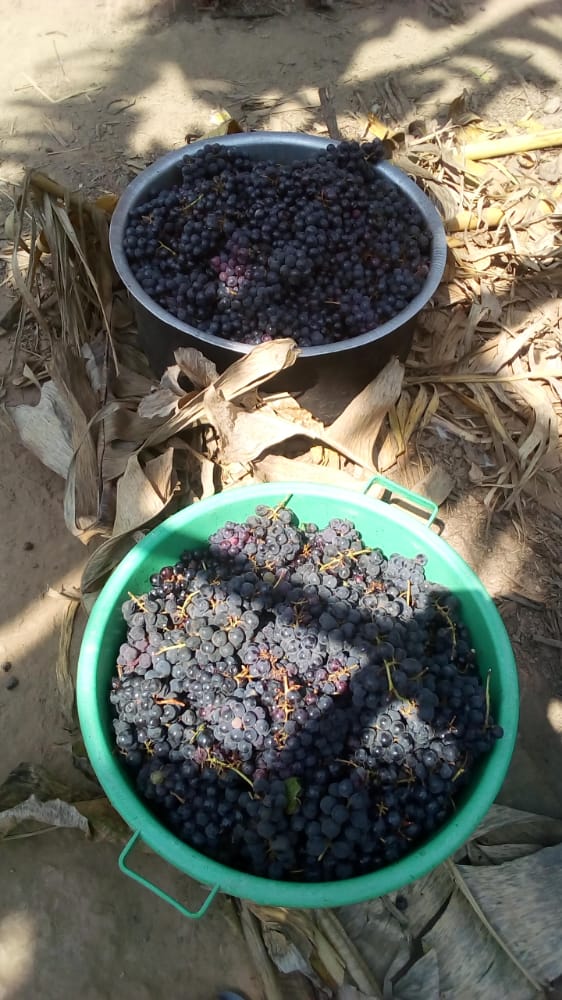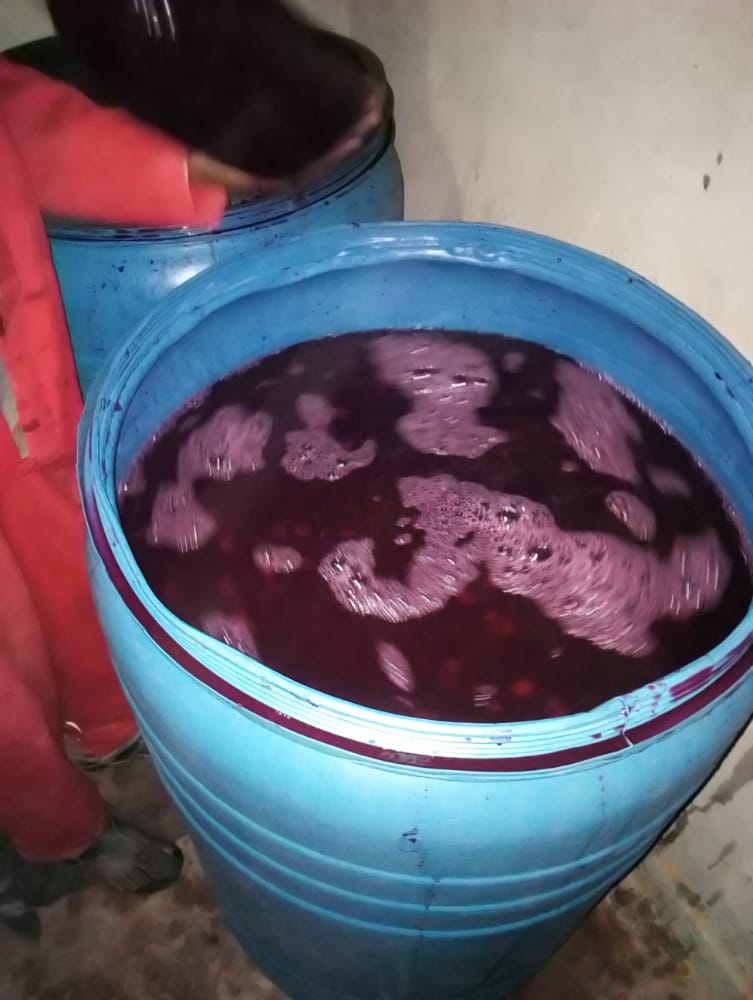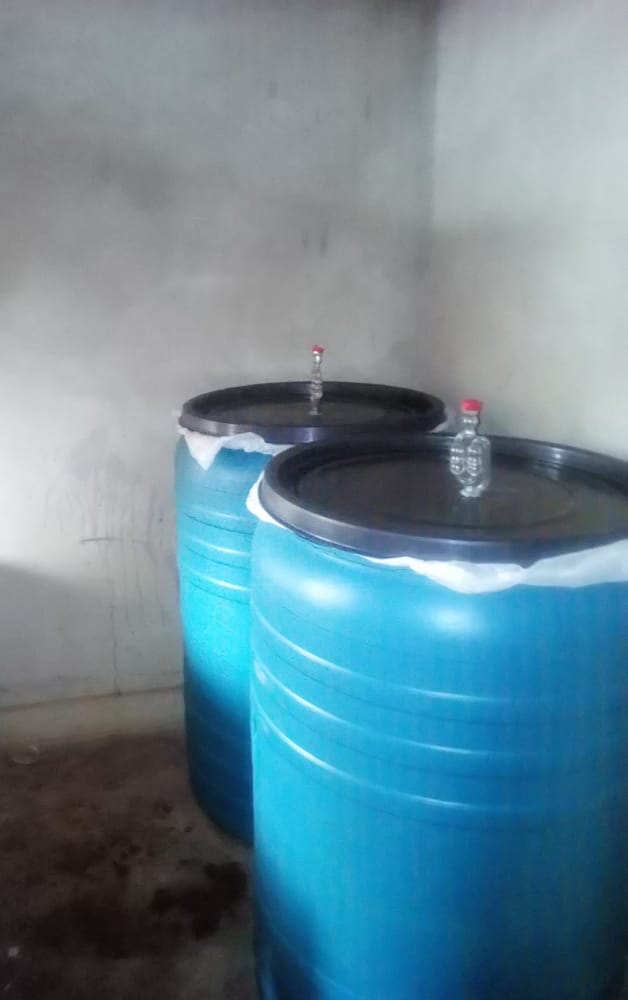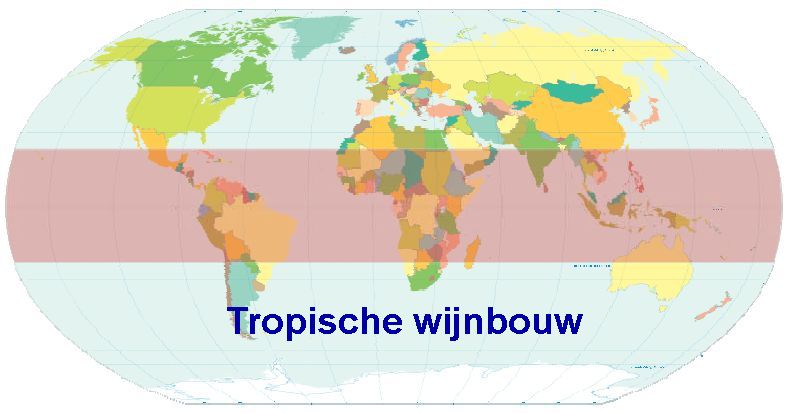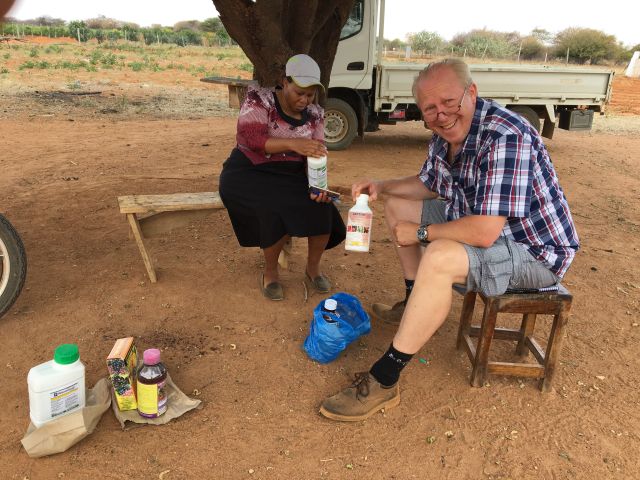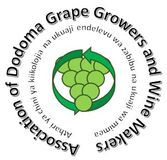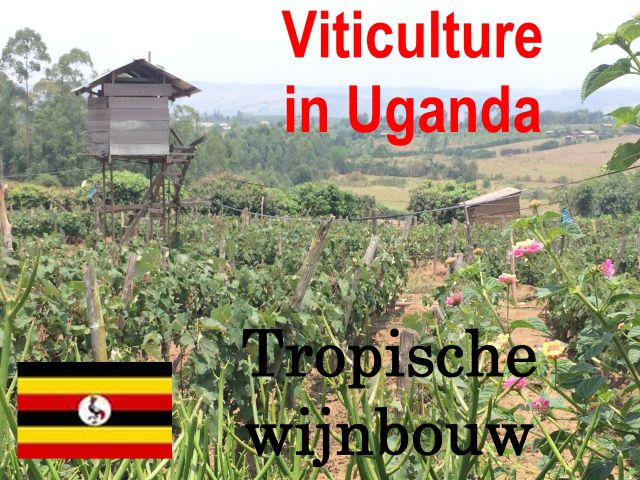Tropical viticultureThere has recently been much interest in tropical viticulture and grape growing in tropical regions has been performed commercially since over 50 years. There are numerous grape growing regions between the tropic of Capricorn and the tropic of Cancer, intertropical zone. Among them Colombia, Brazil, Uganda, Ethiopia, Tanzania, Kenya, India, Thailand etc.
In tropical regions, the most part of vineyards is for table grape production, but there are also increasing vineyard areas for growing of quality wine grapes.
Traditional wine growing areas are located in temperate climate zones and allow to produce grapes only once per year. Tropical wines have been elaborated in India, Thailand, Venezuela and Brazil. For example, northeast region of Brazil makes wine production and grapevines of this region can produce two or three crops per year depending on cycle of different grape varieties.
General adaptation problems of the traditional Vitis vinifera varieties (in terms of bud dormancy, apical dominance, low fertility, susceptibility to fungal diseases) and of the Vitis labrusca varieties (in terms of dormancy, lack of vigor) restrict the production to a decreased number of varieties.
In the tropic and subtropic climates, variations in rainfall, temperature and altitude lead to massive environmental diversity. In wet humid tropics, grapevines are evergreen, grow continuously and it is possible to have one cropping cycle per year with controlled pruning. On the other hand, grapevines have usually two cycles per year or three cycles per two year in the dry tropics and subtropical regions (Possingham, 2004).
In tropical regions, grapevine behavior is also different from temperate climate and by means of proper irrigation and pruning management, it can be obtained two crops per a year and harvest in this regions. Tropical viticulture permits grape growers to grape harvest in seasons of higher prices and tropic regions leads to high economic profitability in grape growing.
Documentation and publications on tropical viticulture
Wine makingAfter fermentation you have to keep the barrels full. Air, especially oxygen, destroys your wine. It is best to replace the water seal with a fixed cap and top up the barrel by putting water-filled plastic bottles in so that the level rises.
|
PUM-missie Tanzania
How to Propagate Grape Vines from Hardwood Cuttings Successfully
https://www.youtube.com/watch?v=0Lwy-dAQ9j4 | ||||||||||||||||||||
-
Start
- Start wijnbouw >
- Start stoken >
-
Lezingen
>
- Wijn en distillaten in de Nederlanden
-
Lezingen-wijn
>
- Wijnbouw onder vuur
- Lezing 'is bio wel eco'
- Lezing Mycorrhiza
- Tambora
- Lezing Stadswijngaard aanleggen
- Smaakzinnen Boechout 16 november 2014
- Geschiedenis van de Belgische wijnbouw, Wommelgem 14 oktober 2014
- Brouwland Pinksteren 2014
- Fruitteeltadvies Zuid Limburg
- WTE-lezing
- Fructura lezing
- Wijngaard aanleggen
- Geschiedenis van de oenologie
- EU wetgeving
- Hout en wijn
- Lezingen-stoken >
- Lezingen-bergen
- Jaap van Rennes >
- Contact >
-
Advies en begeleiding
-
Wijnbouw
-
Stoken
- Legaliseer hobby stoken
- Publicaties
-
Meningen
- Ambtelijke willekeur
- Kafka was een Belg
- Wolven zijn te gek
- Kwetsbaarheid groene energie
- Is de staat nog de norm?
- btw op energie
- Duurzaamheid (CO2-foodprint) >
- Hongerstaking voor regularisatie
- GMO-wijndruiven
- Archeologie in de 31e eeuw
- Geld versluizen onder het mom van wijnbouw steunen
- Wat met koper?
- Übermenschen keren terug >
- Gifwijn mag van EU
- Gevoeligheid
- China en de economische oorlog
- Reactie op VILT
- Coronavirus >
- Groene terreur
- Hybride-GIN
- FAVV controles
- Alcohol onder vuur >
- I rest my case
- Belastingverhoging lost alles op
- Waarom we ons fruit niet distilleren
- Legaliseer thuis stoken >
- Discriminatie van de wijnbouw
- Mediatisering
- Boerderij
- Eigen weed
- Link
- Leven met de natuur
